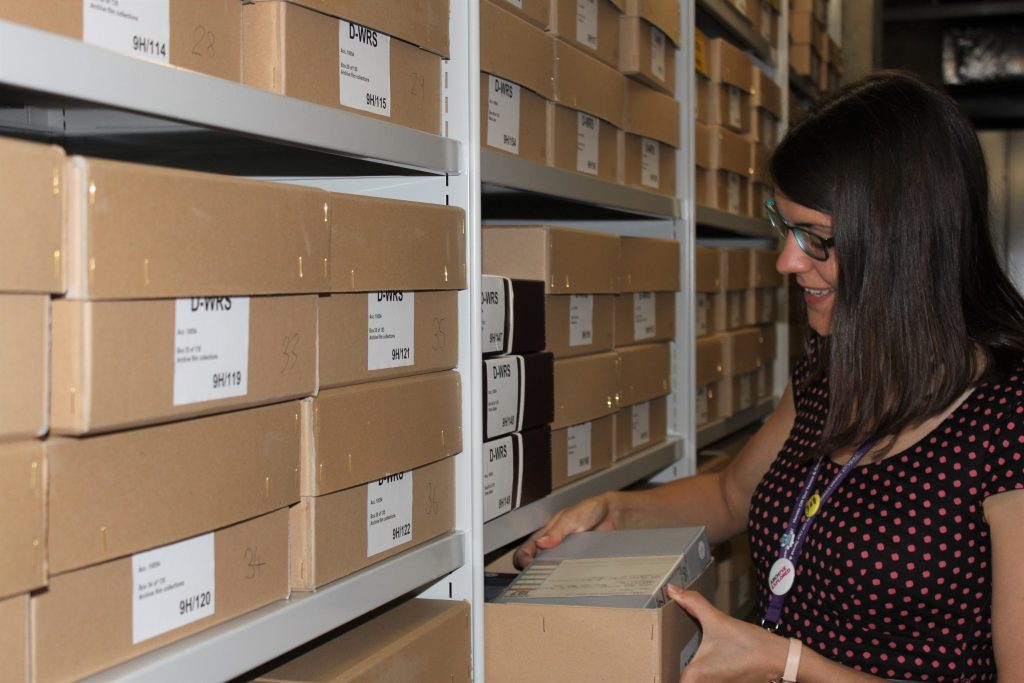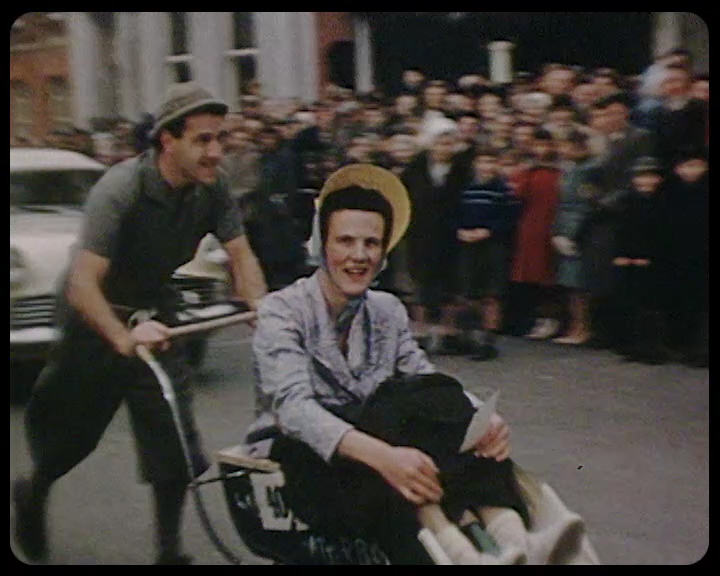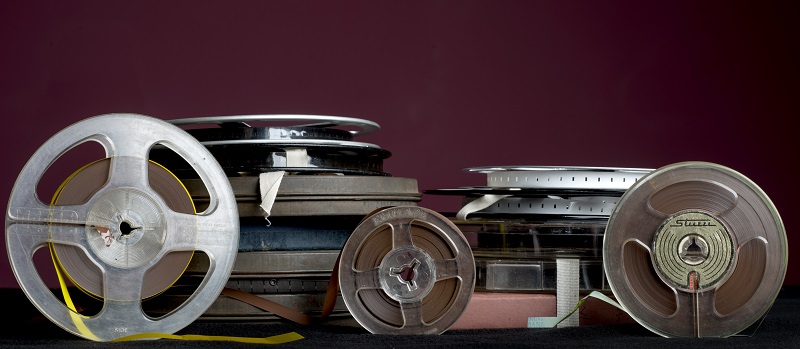For most people the word ‘archives’ conjures images of dusty basements crammed full of old documents.
It’s true that Dorset’s archives contain millions of paper and parchment documents dating from 965AD (though neatly boxed and not dusty!). But this is not the whole story. We collect all types of media and are much more interested in the content than the carrier. This means our collections are enriched with audio and visual material covering a whole host of topics, from farming and schooldays to trains and World War Two.

The challenges
Our repositories include a special room for audio-visual material which is slightly drier and cooler than the paper and parchment repositories. Even in the best conditions audiovisual media such as film, videos and cassette tapes will deteriorate over time. The technology used to create and view them has almost vanished. We have been working to digitise much of this ‘at risk’ content and preserve it in our digital repository.

We are currently working with local film charity Windrose Rural Media Trust to digitise and catalogue more of their extensive collection of life in Dorset from the early 20th century. The old camera and VHS tapes are a fascinating glimpse into times gone by. We are looking forward to sharing these with you.
Born-digital
Increasingly we are also collecting more and more ‘born-digital’ audiovisual archives. Born-digital means they were created on a computer and do not exist in a physical form. Born-digital archives are also kept in our digital repository where files are monitored for corruption and can easily be migrated to more accessible formats.

Digital files allow for more flexibility in how we share them. For example, excerpts of recordings from a recent oral history project looking at the experiences of the LGBTQ+ community can be enjoyed via Soundcloud. We have ambitions to make our audiovisual content more accessible in the future – watch this space!

